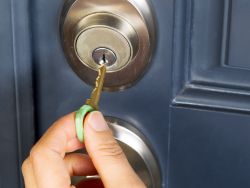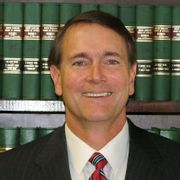A Guide to Exemptions in Chapter 7 Bankruptcy

Chapter 7 bankruptcy laws allow you to keep a certain amount of personal property after your eligible debts have been dismissed. These personal assets are known as exemptions, and they cannot be sold to repay debts you owe to your creditors. Learn more about how Chapter 7 works and some common exemptions filers claim during the bankruptcy process with this helpful guide.
How Does Chapter 7 Bankruptcy Work?
In a Chapter 7 filing, a bankruptcy trustee is appointed by the courts. The trustee has the power to sell the debtor's assets to repay all or a portion of the outstanding debts. Most remaining balances are then wiped out by the courts, allowing the debtor to start over with a clean financial slate.
However, there are limits on which assets a trustee can sell. Bankruptcy laws are designed to help filers start over and gain control of their finances. To facilitate this financial recovery, the law allows some assets to be exempt from bankruptcy. This means you can keep these items without worrying that they will be sold and the proceeds distributed to your creditors.
Common Exemptions
 Every state has different types and limits when it comes to exemptions. In North Carolina, you can protect up to $35,000 in equity of any property used as a residence. This limit is raised to $60,000 if you are 65 or older.
Every state has different types and limits when it comes to exemptions. In North Carolina, you can protect up to $35,000 in equity of any property used as a residence. This limit is raised to $60,000 if you are 65 or older.
You can exempt up to $3,500 in one motor vehicle. A $5,000 exemption is also allowed for personal goods, like clothing, furniture, appliances, electronics, and books. Most retirement plans and pensions are exempt in North Carolina.
Other Considerations
To claim exemptions, list them on Schedule C of your bankruptcy forms. Be sure to take an exhaustive inventory of all items you own and what you want to claim, as items inadvertently left off the list will not be eligible, whether or not they qualify as exempt.
Also, just because you have exemptions available doesn't mean you have to take them. For instance, if you'd rather get rid of the expense of owning a car, you can choose to make the vehicle nonexempt and have it sold to repay creditors.
A bankruptcy attorney will help you understand your right to claim exemptions. For nearly three decades, The Law Office of J. Baron Groshon has been serving the Charlotte, Concord, Gastonia, and Cornelius, NC, regions. He offers representation in Chapter 7 and Chapter 13 bankruptcy claims, as well as in estate planning matters. Call (704) 342-2876 or visit the website to schedule a consultation.
About the Business
Have a question? Ask the experts!
Send your question

